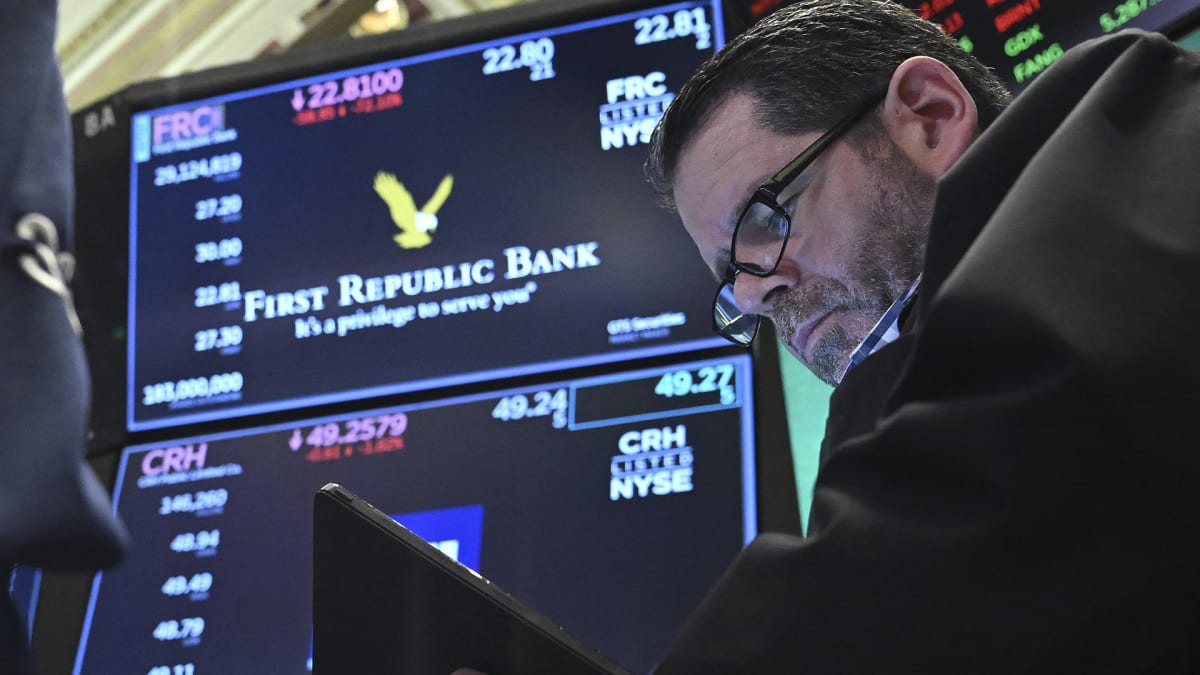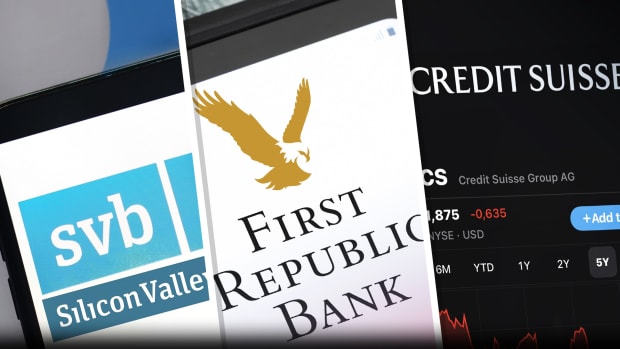
The most serious banking crisis since the Great Financial Crisis of 2008 has already claimed four victims and not the least on both sides of the Atlantic.
On this side, Silvergate was the first to fail. It was followed by the sudden collapse of Silicon Valley Bank and the surprise closure of Signature Bank in New York (SBNY).
These failures have caused jitters among investors, worried about contagion.
In Europe, the Swiss authorities have forced a marriage between UBS and Credit Suisse after an unprecedented crisis of confidence in the latter, the last years of which have been marked by scandals.
Credit Suisse was acquired by UBS on March 19 for a modest sum of $3.24 billion, well below its market value of $8 billion at the time of the deal. Sign of the desperation of the Swiss government to restore confidence in the markets, the Swiss National Bank, the central bank, has granted a backstop of more than $100 billion to UBS and an envelope of more than $9 billion in case there are skeletons in the closet from Credit Suisse.

Shares May Sink to $5
With the fate of systemic bank Credit Suisse settled, eyes are once again on regional US banks. The pressure is particularly on First Republic Bank (FRC). For investors worried about what they don't know, First Republic Bank, which has a portfolio of municipal bonds, presents a similar profile to SVB (SIVB).
The bank's shares were down 22% at the time of writing, while shares of most regional banks rose. Since the setbacks of SVB, the stock has fallen by 80%.
First Republic Bank's customers withdrew some $70 billion in deposits, almost 40% of total deposits, according to press reports. Withdrawals stabilized, however, after a coalition of 11 U.S. banks contributed $30 billion in deposits to First Republic Bank, to shore up its liquidity.
The major banks -- Bank of America, JPMorgan Chase, Wells Fargo and Citigroup -- participated in the rescue plan, each contributing $5 billion. Goldman Sachs and Morgan Stanley each contributed $2.5 billion.
"America’s larger banks stand united with all banks to support our economy and all of those around us," the banks said.
The only problem: this show of force did not reassure investors. Analysts and investors wonder if the bank is really stable and how much longer can it resist the current market conditions.
Some analysts believe that First Republic Bank must raise funds or sell itself because it would have suffered, according to them, similar losses to Silicon Valley Bank. SVB had a portfolio of bonds acquired when interest rates were low. The value of these bonds declined as interest rates rose, causing a net loss of $1.8 billion when the bank sold them. This caused a run on the bank from panicked customers.
Wedbush analysts estimate, for example, that any acquirer of First Republic Bank will have to fill a hole of $13.5 billion in capital.
"We believe a distressed M&A sale could result in minimal, if any, residual value to common equity holders owing to FRC's significant negative tangible book value after taking into account fair value marks on its loans and securities," said Wedbush analyst David Chiaverini.
He said the stock could sink to $5. The stock is trading around $18.
'Well Positioned'
The rating-company S&P has just downgraded First Republic's rating for the second time in a week. It explained that the $30 billion in deposits "may not solve the substantial business, liquidity, funding, and profitability challenges that we believe the bank is now likely facing."
S&P indicates that there are only two scenarios which could lead it to not downgrade First Republic Bank's rating further.
The bank must make "meaningful progress in rebuilding its deposit base with traditional core business and consumer deposits."
First Republic Bank can manage the situation, a spokesperson said.
"Republic Bank is well positioned to manage short-term deposit activity," the spokesperson said in an emailed statement, adding that the $30 billion in deposits "reflects confidence in First Republic and its ability to continue to provide unwavering exceptional service to its clients and communities."
This statement clearly suggests that the bank is confident that it can stabilize without further aid.
Behind the scenes, First Republic Bank is exploring its options, including an equity sale and a potential sale. The bank has retained the services of an investment bank. The spokesperson declined to comment.
In view of the fact that no buyer had applied to acquire SVB, it is unclear whether First Republic Bank could attract potential suitors in the event that the bank decides to sell itself.
There is also an unknown: how would regulators react if First Republic Bank continues to fall on the stock market?
Last week, Credit Suisse repeated that it had enough cash to get by after receiving a nearly $54 billion emergency loan from the Swiss government.
But over the weekend, the 167- year old bank was swallowed.







